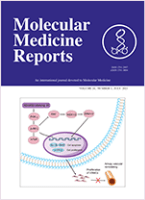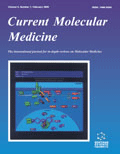
JCI Insight
Scope & Guideline
Transforming Research into Health Solutions
Introduction
Aims and Scopes
- Molecular and Cellular Biology:
The journal publishes studies that elucidate the molecular and cellular mechanisms underlying various diseases, including cancer, autoimmune disorders, and infectious diseases. - Translational Research:
JCI Insight emphasizes research that translates findings from basic science into clinical applications, aiming to improve patient outcomes through innovative therapies. - Immunology and Inflammation:
A significant portion of the research highlights the immune system's role in disease progression and resolution, focusing on the mechanisms of immune responses and potential therapeutic interventions. - Metabolism and Disease:
Research on metabolic pathways and their implications in diseases such as obesity, diabetes, and cardiovascular disorders is a core area of focus, integrating metabolic studies with clinical outcomes. - Genomics and Personalized Medicine:
The journal supports studies that utilize genomic technologies to understand disease susceptibility, progression, and treatment response, paving the way for personalized medicine approaches. - Microbiome Research:
Emerging studies on the role of microbiomes in health and disease are increasingly featured, exploring how microbial communities influence immune responses and metabolic processes.
Trending and Emerging
- Cellular Immunotherapy:
There is a notable increase in studies focusing on cellular therapies, including CAR T-cell therapy, highlighting the journal's commitment to advancing treatment strategies for cancers and chronic infections. - Microbiome and Health:
Research exploring the role of the microbiome in health and disease has gained significant traction, emphasizing the interplay between microbial communities and host immune responses or metabolic health. - Inflammation and Fibrosis:
Emerging studies are increasingly focused on the mechanisms of inflammation and fibrosis across various diseases, particularly in the context of chronic conditions like pulmonary fibrosis and organ transplant rejection. - Long COVID and Post-Acute Sequelae:
Research addressing the long-term effects of COVID-19, including the characterization of long COVID and its immunological underpinnings, has become a priority, reflecting the ongoing global health crisis. - Regenerative Medicine:
There is a growing trend towards studies in regenerative medicine, particularly those exploring stem cell therapies and tissue engineering, as researchers seek innovative solutions for tissue repair and regeneration. - Precision Medicine Approaches:
The journal is increasingly publishing studies that integrate genomics and personalized medicine, aiming to tailor treatments based on individual patient profiles and genetic backgrounds.
Declining or Waning
- Traditional Pharmacology:
Research centered around traditional pharmacological approaches is less prominent, as there is a growing preference for studies that explore novel therapeutic modalities and personalized medicine. - Basic Animal Models:
While animal studies remain crucial, there is a noticeable decline in publications solely focused on basic animal model research without translational implications, as the journal seeks more clinically relevant findings. - Static Observational Studies:
There is a waning interest in static observational studies that do not incorporate dynamic biological mechanisms or innovative methodologies, as the journal prioritizes more interactive and mechanistic investigations.
Similar Journals

BIOFACTORS
Elevating Research Standards in Biochemistry and MedicineBIOFACTORS, an esteemed journal published by Wiley, serves as a pivotal resource in the fields of Biochemistry, Clinical Biochemistry, and Molecular Medicine. With ISSN 0951-6433 and E-ISSN 1872-8081, the journal has established its reputation since its inception in 1988, showcasing a rich history of scientific inquiry and innovation. Recognized for its high academic standards, it currently holds a Q1 ranking in key categories, including Biochemistry and Medicine (miscellaneous), and ranks in the top 10% for Clinical Biochemistry according to Scopus metrics, reflecting its impact and influence in the scientific community. Although it does not offer Open Access, BIOFACTORS provides researchers the opportunity to publish and disseminate high-quality studies that advance our understanding of biological factors and their clinical implications. The journal actively encourages contributions that bridge the gap between laboratory findings and clinical applications, making it a vital platform for both seasoned researchers and emerging scholars in the life sciences.

Cold Spring Harbor Perspectives in Medicine
Uncovering Breakthroughs in Biochemistry and GeneticsCold Spring Harbor Perspectives in Medicine is a premier academic journal published by the esteemed COLD SPRING HARBOR LAB PRESS that has become a crucial resource in the fields of Biochemistry, Genetics, and Medicine. With an impressive impact factor and consistently ranked in the Q1 quartile for both biochemistry and general medicine—as evidenced by its Scopus rankings of #21 and #26 respectively—this journal serves as an essential platform for disseminating high-quality research and comprehensive reviews from leading experts. Covering a convergence of knowledge spanning from 2011 through 2024, it plays a vital role in advancing the understanding of medical science. Researchers, professionals, and students alike benefit from Cold Spring Harbor Perspectives in Medicine, which offers a depth of insight into critical topics, emerging trends, and essential developments within the medical community. Join the conversation and contribute to the ongoing dialogue that drives innovation and excellence in medical research.

Journal of Translational Medicine
Transforming Research into Real-World Impact.Journal of Translational Medicine, published by BMC in the United Kingdom, stands at the forefront of biomedical research, bridging the gap between laboratory discoveries and clinical applications. Established in 2003 as an Open Access journal, it has garnered significant recognition, achieving a Q1 quartile ranking in both Biochemistry, Genetics and Molecular Biology and Medicine categories as of 2023. With an impressive Scopus rank of 38 out of 636 in General Medicine and 33 out of 221 in General Biochemistry, Genetics and Molecular Biology, the journal is committed to disseminating high-quality, peer-reviewed research that impacts healthcare and informs clinical practices. By facilitating free access to groundbreaking studies, the Journal of Translational Medicine aims to enhance collaboration among researchers, professionals, and students in the scientific community, fostering advancements in translational research well into the future.

INTERNATIONAL JOURNAL OF HUMAN GENETICS
Navigating the Complexities of Human GeneticsINTERNATIONAL JOURNAL OF HUMAN GENETICS is a distinguished publication dedicated to advancing knowledge in the fields of genetics and molecular biology. Published by KAMLA-RAJ ENTERPRISES, this journal explores critical developments and research findings from 2008 to 2016, though its coverage in Scopus has since been discontinued. With an ISSN of 0972-3757 and an E-ISSN of 2456-6330, the journal aimed to foster scholarly dialogue and serve as a resource for researchers, professionals, and students engaged in human genetics. While the journal holds a modest ranking in categories such as Biochemistry and Genetics, it remains a vital source for exploring niche topics within the realm of human genetics. Researchers interested in genetic screening, gene therapy, and clinical genetics will find valuable insights herein. Despite its pause in indexing, the journal continues to contribute to the academic discourse by disseminating critical research that bridges gaps in understanding human genetics.

EBioMedicine
Connecting researchers to the forefront of biomedical science.EBioMedicine is an esteemed open-access journal published by ELSEVIER, dedicated to advancing the fields of biochemistry, genetics, and molecular biology, as well as medicine. Since its inception in 2014, EBioMedicine has established itself as a prominent platform for disseminating high-quality research, evidenced by its impressive rankings in Scopus, where it holds a Q1 category in both Biochemistry, Genetics and Molecular Biology and Medicine for 2023. With an exceptional impact factor that places it in the top percentiles (97th in Medicine and 93rd in Biochemistry), the journal is recognized for its rigorous peer-review process and its commitment to fostering scientific collaboration. Open access since its launch, EBioMedicine ensures that groundbreaking research is readily available to researchers, professionals, and students worldwide, enhancing knowledge dissemination and driving innovation in these crucial fields. For those seeking to stay at the forefront of biomedical research, EBioMedicine is an invaluable resource.

JOURNAL OF CELLULAR AND MOLECULAR MEDICINE
Unlocking the Secrets of Life at the Cellular LevelJournal of Cellular and Molecular Medicine, published by Wiley, stands at the forefront of research excellence in the fields of cell biology and molecular medicine. With an impressive impact factor reflected in its 2023 Q2 category ranking for both Cell Biology and Molecular Medicine, this journal provides a vital platform for researchers and professionals alike, fostering innovative findings and groundbreaking discoveries since its inception in 2000. Maintaining an open access policy since 2012, the journal ensures that knowledge is freely disseminated, promoting collaboration and progress across the scientific community. With robust rankings in the Scopus database, including a position within the top 85th percentile in Molecular Medicine, the journal remains committed to advancing understanding of cellular functions and their implications in health and disease. Researchers, professionals, and students will find a treasure of high-quality articles and reviews that not only catalyze academic dialogue but also contribute significantly to practical applications in the life sciences.

MedComm is a distinguished Open Access journal published by Wiley, located in the United States. Since its inception in 2020, it has rapidly established itself as a leading platform for cutting-edge research in the fields of Biochemistry, Cell Biology, Drug Discovery, Genetics, Immunology and Allergy, and Oncology, achieving a prestigious Q1 category ranking across multiple disciplines in 2023. MedComm is committed to providing a rigorous and transparent peer-review process, ensuring the publication of high-quality articles that advance the frontiers of medical science. With its remarkable Scopus ranking, the journal serves as an invaluable resource for researchers, professionals, and students looking to stay abreast of important developments in the life sciences. The open access model facilitates widespread dissemination of scholarly work, fostering collaboration and innovation within the global scientific community. Researchers interested in submitting their work or exploring the latest findings are encouraged to engage with this pivotal journal during the converged years from 2020 to 2024.

Molecular Medicine Reports
Transforming Research into Real-World ApplicationsMolecular Medicine Reports, an esteemed academic journal published by Spandidos Publications Ltd, serves as a vital platform for the dissemination of cutting-edge research in the field of molecular medicine. Established in 2008, this journal has rapidly ascended in prominence, currently positioned within the Q2 and Q3 quartiles across various critical categories including Biochemistry, Cancer Research, and Genetics, reflecting its significant impact and scholarly contributions. With an impressive Scopus ranking in multiple disciplines, including an 87th place in Oncology, it is recognized for publishing rigorous, peer-reviewed articles that bridge the gap between laboratory research and clinical applications. The journal’s commitment to advancing knowledge in molecular medicine is evident through its focus on innovative therapeutic approaches, genetic research, and oncological studies, catering to a diverse readership of researchers, professionals, and students in the biomedical field. Though not an open-access publication, it provides invaluable insights and fosters collaboration in the scientific community from its base in Athens, Greece.

EUROPEAN JOURNAL OF IMMUNOLOGY
Illuminating the Path to Immunological AdvancesWelcome to the European Journal of Immunology, a premier peer-reviewed journal dedicated to advancing the field of immunology and allergy research. Established in 1971 and published by Wiley, this esteemed journal has been consistently ranked in the top quartile (Q1) across its categories, highlighting its significant impact within the scientific community. With an impressive Scopus ranking, the journal occupies the 64th position in Immunology and Allergy and the 74th in the broader sector of Immunology and Microbiology, demonstrating its vital role in driving innovation and knowledge in immunological studies. The European Journal of Immunology publishes high-quality original research, comprehensive reviews, and insightful commentary, making it an indispensable resource for researchers, healthcare professionals, and students dedicated to understanding the complexities of the immune system. Although not an open-access journal, it offers various subscription options to ensure that institutions and individuals can access pivotal research that shapes the future of immunology.

CURRENT MOLECULAR MEDICINE
Advancing the Frontiers of Molecular MedicineCURRENT MOLECULAR MEDICINE is a pivotal journal fostering advancements in the interdisciplinary fields of molecular medicine, biochemistry, and genetics. Published by Bentham Science Publishers, this esteemed journal has been disseminating vital research findings since its inception in 2001 and is continuously dedicated to exploring the molecular basis of health and disease. With a focus on translational research, CURRENT MOLECULAR MEDICINE provides an invaluable platform for researchers, healthcare professionals, and students, making significant contributions to the understanding of molecular mechanisms and therapeutic strategies. With an ISSN of 1566-5240 and an E-ISSN of 1875-5666, the journal holds a commendable position within the scientific community, being ranked Q3 in Biochemistry and Molecular Biology and Q2 in Medicine (miscellaneous) as of 2023. This journal does not currently operate on an open access model but remains accessible through various institutional subscriptions. The multidisciplinary scope covering molecular biology to medicinal applications positions CURRENT MOLECULAR MEDICINE as an essential resource for those striving to meet the challenges of modern healthcare and biomedical research.